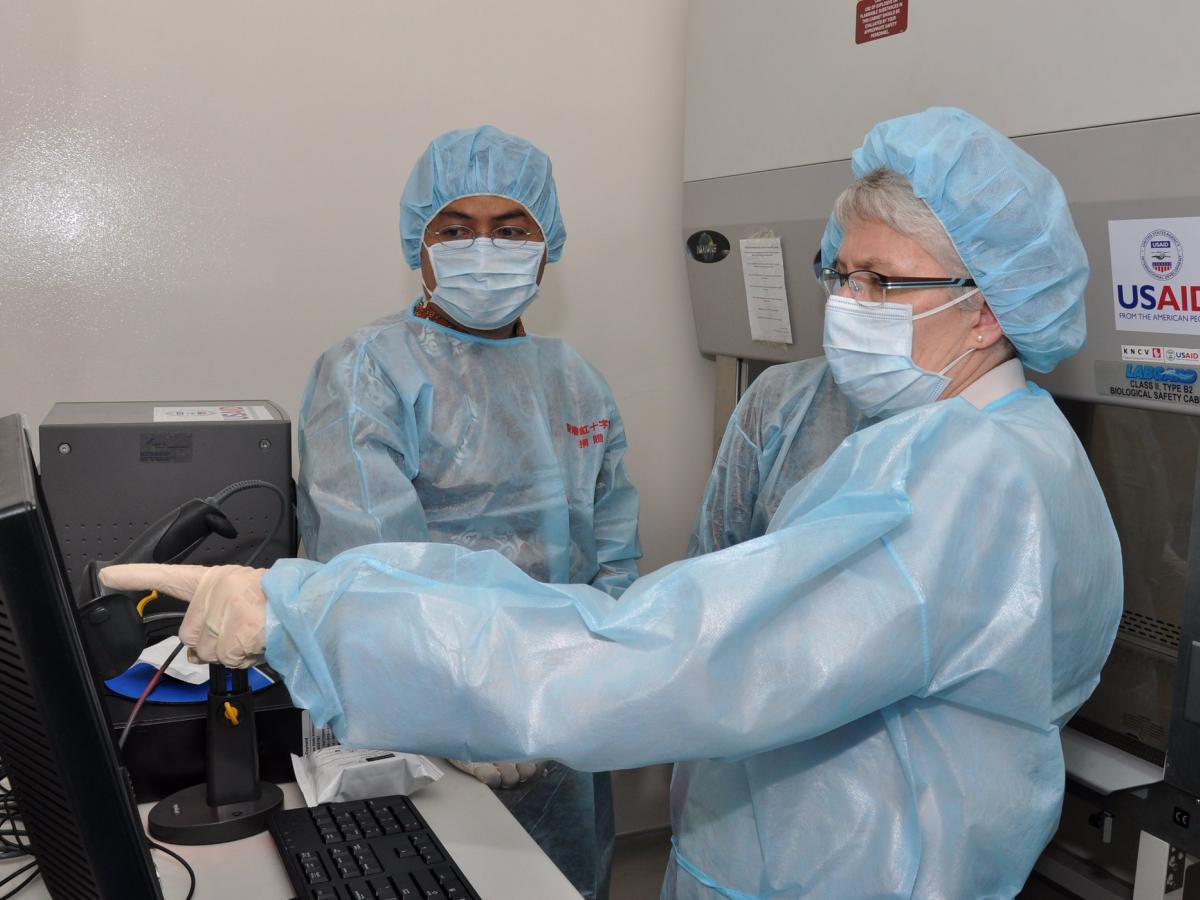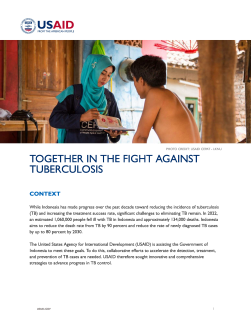Context
While Indonesia has made progress over the past decade toward reducing the incidence of tuberculosis (TB) and increasing the treatment success rate, significant challenges to eliminating TB remain. In 2022, an estimated 1,060,000 people fell ill with TB in Indonesia and approximately 134,000 deaths. Indonesia aims to reduce the death rate from TB by 90 percent and reduce the rate of newly diagnosed TB cases by up to 80 percent by 2030.
The United States Agency for International Development (USAID) is assisting the Government of Indonesia to meet these goals. To do this, collaborative efforts to accelerate the detection, treatment, and prevention of TB cases are needed. USAID therefore sought innovative and comprehensive strategies to advance progress in TB control.
Bersama Menuju Eliminasi dan Bebas dari TB (USAID BEBAS TB)
USAID BEBAS TB is USAID’s flagship activity to improve the quality of tuberculosis case detection, diagnosis, care, and prevention with innovative solutions to collaboratively advance progress in TB control.
This activity will improve TB care in both public and private health care facilities by enhancing the knowledge and skills of health professionals and community health workers. USAID BEBAS TB will provide technical assistance to Indonesia’s National TB Program to improve the quality of TB service delivery by introducing and piloting new approaches and treatment regimens, while bringing international best practices to Indonesia.
USAID BEBAS TB works in four densely populated provinces with a high TB burden: North Sumatra, West Java, Central Java, and East Java.
Anticipated Results
- Enhance TB case finding by improving the capacity of healthcare workers and expanding case detection coverage;
- Improve the quality of TB screening and diagnosis by leveraging cutting-edge technologies and expanding the diagnostic network;
- Improve the quality of TB service delivery by improving treatment monitoring systems, integrating TB services, expanding community-based TB services, and utilizing the latest TB drug regimens;
- Optimize TB prevention by strengthening the implementation of latent TB infection control, expanding awareness and use of TB preventive treatment;
- Strengthen the health system to accelerate TB elimination through more sustainable healthcare financing and a comprehensive TB information system;
- Increase community participation in implementing development activities by strengthening collaboration between stakeholders and communities to enhance organizational capacity in TB control, promoting broader community involvement in TB programs; and
- Implement research to improve TB control by providing technical assistance for the planning and implementation of operational research related to TB control.
Contact
Mohammad Sonata, USAID at msonata@usaid.gov
Erik Post, MSH at epost@msh.org


